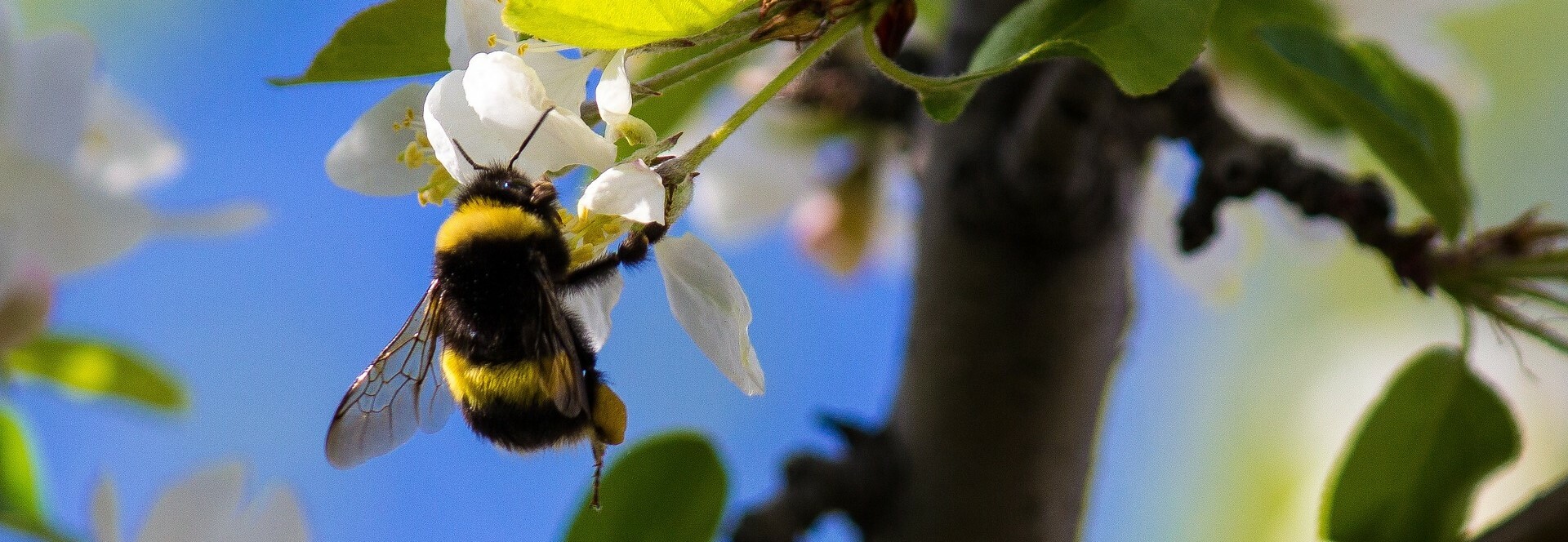
March 2024
What do we do about the environmental impact of neonicotinoids? The question will be discussed at length at a Westminster Hall debate on Tuesday 5 March, secured by Chester MP Samantha Dixon.
Leading organisations working on pesticides and pollinators have briefed ahead of this debate, including the Pesticide Collaboration and the Environment APPG. They convey a clear message to MPs – neonicotinoids post a huge environmental risk, and their use is unjustifiable.
Neonicotinoids (“neonics”) and other pesticides are used in conventional agriculture to protect crops from pests. However, the real-world implications of neonics and other pesticides demonstrate that these chemicals do not just impact their intended pest targets. Pesticides often escape into the wider environment, contaminating soil, groundwater and rivers. They are also extremely harmful to on- and off-farm biodiversity such as invertebrates and pollinators (1tsp can kill 1.25 billion honeybees) according to academic Professor Dave Goulson), birds and aquatic life. Research by the Rivers Trust and Link demonstrated that at least one out of five neonicotinoid pesticides examined (four of which are banned in the EU) were found in more than one in ten English river sites tested by the Environment Agency. Pesticides are also known to release GHG emissions, contributing to climate change and reinforcing a vicious cycle as climate change increases pest pressures and decreases crop resilience.
Unfortunately, policy progress lags behind the pace of action nature and society desperately need to tackle the harmful impact of these chemicals. The National Action Plan on the Sustainable Use of Pesticides, already nearly six years late, is stuck in limbo after further uncertainty earlier this year.
Against the advice of its Expert Committee on Pesticides, the Government recently authorised the emergency use of a toxic neonic called Cruiser SB (thiamethoxam), known to hurt bees, for a fourth year in a row to treat sugar beet seeds in England. Normally the Health and Safety Executive will not consider more than three repeat authorisations of products. In 2022, the Government and sugar beet industry both indicated it would not require neonics in future due to the development of pest-resistant crops and pivot towards Integrated Pest Management (IPM). IPM is an approach to managing pests, diseases or weeds under which chemical pesticides are used only as a last resort, if at all.
It is important to highlight that British Sugar, a subsidiary of the huge corporation Associated British Foods, effectively controls the UK sugar beet crop and has repeatedly promised to financially support farmers to switch to sustainable alternatives to the bee-killing pesticide neonicotinoid. Indeed, British Sugar have previously promised to end the use of pesticide by 2023. Yet here we are again.
At the heart of these debates is the vital need to support farmers to adopt more nature-friendly practices. Those working to reform pesticides policy must ensure that farmers can continue to grow food and crops for society while being rewarded for delivering important public goods through nature-friendly, agroecological farming methods. With the right support, farmers can transition to food production techniques that reduce their reliance on costly chemical inputs while contributing to nature recovery, enhancing biodiversity and sustainably maximising farm yields and economic profitability. Evidence shows that it is already possible to produce sugar beet without neonics, with 29% of sugar beet growers in 2022 and 40% in 2023 planting seeds that were not treated by Cruiser SB.
Link continues to call for this extra support, asking political parties to commit to a Pay Rise for Nature in the next general election, which will support IPM and other practices such as organic growing. This increased funding for nature-friendly farming would pay farmers fairly to avoid over-application of pesticides and to adopt nature-friendly alternatives instead.
Link has outlined detailed recommendations for pesticides action in 2024, including phasing out damaging pesticides and reducing overall use through pesticide reduction targets. It’s also time to stop repeated emergency authorisations of banned pesticides. The Government needs to hold industry to account for their commitments to innovate for alternatives rather than allowing them to rely on derogations, and we need to support farmers to transition away from harmful pesticides. We also need to reform the pesticide “pre-approval” process and close loopholes that allow bee-harming pesticides to be approved and better account for the risks of cocktail effects or co-formulants (efficiency/usability elements of pesticides mixtures, e.g., anti-foaming agents) in pesticides) that are known to be harmful to bees.
The environmental impact of using neonics and other hazardous pesticides is clear. What isn’t clear is why we are still discussing this instead of taking necessary action to support both farmers and nature and transition away from the use of these toxic chemicals.
Dr Hannah Blitzer, PhD, Senior Policy Officer, Wildlife and Countryside Link. Follow @WCL_News for more information.
The opinions expressed in this blog are the authors' and not necessarily those of the wider Link membership.

Latest Blog Posts